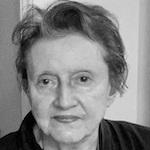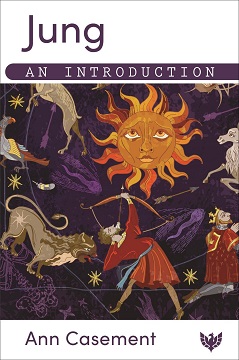Ann Casement

Ann Casement, LP (1938–2025), was an honorary professor at the Oriental Academy for Analytical Psychology; senior member of the British Jungian Analytic Association; associate member of the Jungian Psychoanalytic Association (New York); New York State licensed psychoanalyst; member of the British Psychoanalytic Council; member of the National Association for the Advancement of Psychoanalysis (New York); member of the British Psychological Society; founder member of the International Neuropsychoanalysis Association; and patron of the Freud Museum in London. She worked for several years in psychiatry from the late 1970s; chaired the UK Council for Psychotherapy (1997–2001); served on the Executive Committee of the International Association for Analytical Psychology (2001–2007), and the IAAP Ethics Committee (2007–2016), becoming its chair in 2010. For two years from 1999 she conducted research working with Lord Alderdice and other stakeholders in the profession on a Private Member’s Bill in the House of Lords on the statutory regulation of the psychotherapy/psychoanalytic profession. From 2015 until her death in 2025, she taught and lectured in China, at the initial invitation of Professor Heyong Shen.
She has lectured and taught in many countries around the world, including the UK, China, Japan, Russia, USA, Canada, Israel, Lithuania, Switzerland, South Africa, Brazil, Mexico, and in several countries in Europe. She contributed to The Economist, and to psychoanalytic journals worldwide, being on the editorial board of some. She served on the Gradiva Awards Committee (New York) in 2013; gave the Fay Lecture in Texas in 2019; was a fellow of the Royal Anthropological Institute; a fellow of The Royal Society of Medicine; and was a member of the Council of the Metropolitan Opera in New York. She produced many articles, reviews, and several chapters for books. Her published books are: Post-Jungians Today (Routledge, 1998), Carl Gustav Jung (Sage, 2001), Who Owns Psychoanalysis? (Karnac, 2004) nominated for the 2005 Gradiva Award, The Idea of the Numinous (Routledge, 2006) with David Tacey, Who Owns Jung? (Karnac, 2007), Thresholds and Pathways Between Jung and Lacan (Routledge, 2021), Jung: An Introduction (Phoenix, 2021), and Integrating Shadow: Authentic Being in the World (Karnac, 2025.)
Jung: An Introduction
This book is an introduction to the ideas of the Swiss psychologist and psychoanalyst, C. G. Jung. The first chapter describes his early home life whilst subsequent chapters are devoted to his work... (more)
Thresholds and Pathways Between Jung and Lacan: On the Blazing Sublime
This groundbreaking book was seeded by the first-ever joint Jung-Lacan conference on the notion of the sublime held at Cambridge, England, against the backdrop of the 100th anniversary of the... (more)
Post-Jungians Today: Key Papers in Contemporary Analytical Psychology
A showcase for the diversity of Jungian thought around the globe Post-Jungians Today is based on the central tenet that analytical psychologists have a strong contribution to make to the prominent... (more)
Carl Gustav Jung
An enlightening and insightful guide to the life and work of one of the founding fathers of psychotherapy and most influential thinkers in modern times.Particularly for the reader new to Jungian... (more)
Who Owns Psychoanalysis?
So who does own psychoanalysis? Equally pertinent, what is psychoanalysis? Even before the death of Sigmund Freud, psychoanalysis was splintering into different groups, each convinced of their... (more)
The Idea of the Numinous: Contemporary Jungian and Psychoanalytic Perspectives
Questions of soul and spirit are increasingly being raised in connection with the scientific exploration of the psyche, and especially in the context of psychotherapy. The contributors to this volume... (more)
Who Owns Jung?
This book has a similar, though not identical, format to Who Owns Psychoanalysis? in being divided into sections as follows: academic, clinical, history, philosophy, science. Who Owns Jung aims to be... (more)








